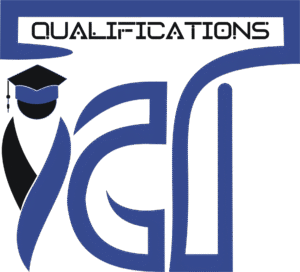Combined Diploma in Health and Social Care
Developing tomorrow’s health and social care professionals


Course Level
Level 4 & Level 5
Course Type
Ofqual Regulated
Awarding Body
Qualifi
Duration
6 to 24 months
Study Mood
Online
Assessment
Assignments Based
Course Overview
What is this course
The Qualifi Level 4 and Level 5 Combined Diploma in Health and Social Care is a comprehensive qualification designed to meet the growing demand for skilled professionals in one of the world’s fastest-expanding industries. This Ofqual-regulated diploma is internationally recognised, making it an excellent choice for those seeking to build or advance careers in health and social care management, leadership, and service delivery.
This combined programme provides a structured learning pathway, integrating the foundational knowledge of Level 4 with the advanced skills of Level 5. Learners will explore essential concepts, policies, and practices in health and social care, progressing from core principles such as safeguarding, communication, and person-centred approaches to higher-level topics including leadership, strategic management, policy development, and ethical decision-making.
Delivered through flexible, assignment-based learning, the course allows learners to balance study with work and personal commitments. It equips participants with the expertise to navigate complex care environments, drive service improvements, and uphold quality standards across diverse settings.
Course Content
Detailed Curriculum Structure
Qualifi Level 5 Extended Diploma in Health and Social Care consists of 11 mandatory units having 2400 TQT and 1200 GLH. Learners must complete all mandatory units to achieve 240 Credits.
Who Should Attend
Target Audience and Participants
- Aspiring healthcare and social care professionals who want to progress into supervisory, managerial, or leadership roles
- Current care workers, support staff, and practitioners seeking to enhance their skills and gain advanced qualifications
- Individuals working in hospitals, care homes, community care, or rehabilitation services aiming to strengthen their expertise and career prospects
- Team leaders and supervisors in health and social care who want to formalize their knowledge with an internationally recognized qualification
- Learners planning further academic progression, such as advancing to university-level study in health and social care or related fields
- Anyone committed to improving service delivery and quality standards in healthcare and social care environments
Career & Learning Benefits
Skills, Knowledge & Opportunities You Will Earn
- Earn an internationally recognized, Ofqual-regulated qualification that strengthens your professional credibility in health and social care
- Gain both Level 4 foundational knowledge and Level 5 advanced skills in one combined programme
- Develop expertise in leadership, management, policy development, and ethical decision-making within care settings
- Learn to apply person-centred approaches, safeguarding practices, and effective communication across diverse environments
- Flexible, assignment-based learning allows you to balance study with work and personal commitments
- Enhance your ability to navigate complex care environments and contribute to service improvement and quality assurance
- Strengthen your career prospects with training that prepares you for supervisory, managerial, and leadership roles
- Build confidence to meet industry standards and best practices in healthcare and social care delivery
- Establish a strong pathway to further academic progression, including university-level study in health and social care or related fields
- Position yourself for long-term career growth in one of the fastest-growing global industries
Need More Information?
Frequently Asked Questions Explained
Enrollment Criteria
Minimum Eligibility Criteria for Enrollment
Lock In Your Spot
Get in Touch
+44 2035 764371
+44 7441 396751
info@ictqual.co.uk
www.inspirecollege.co.uk









